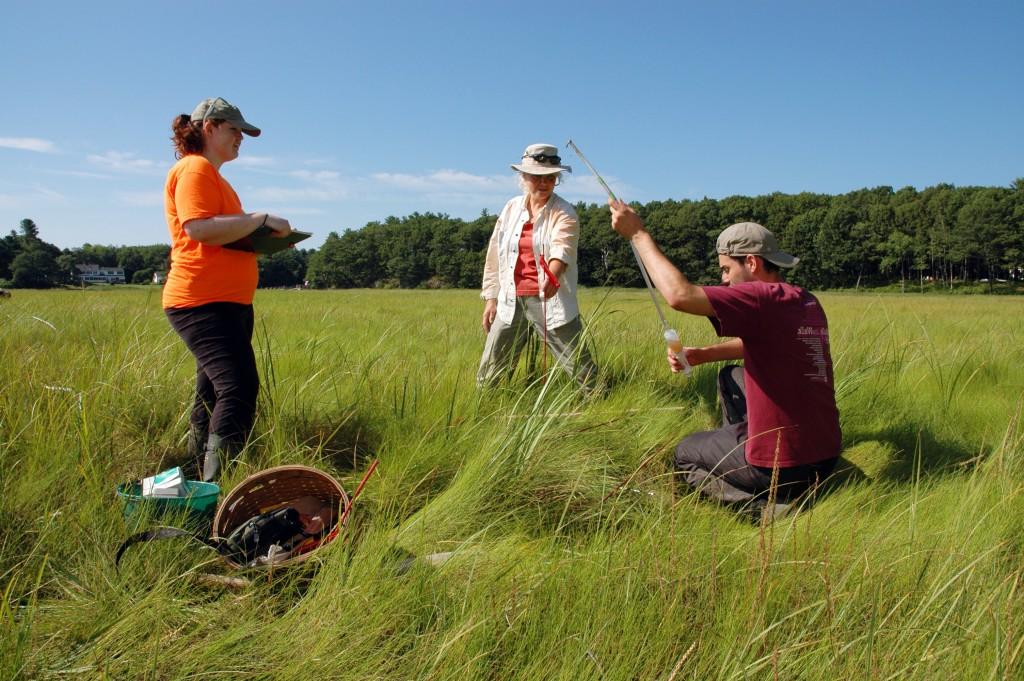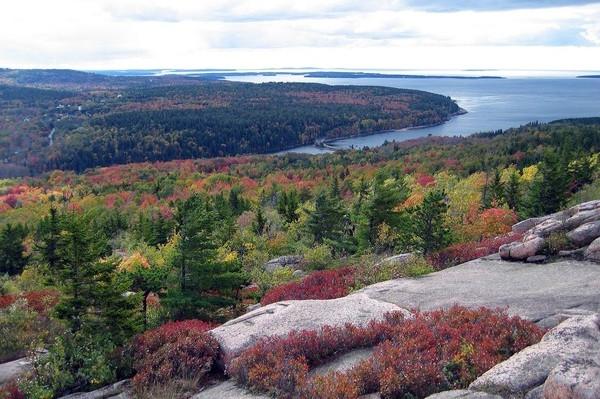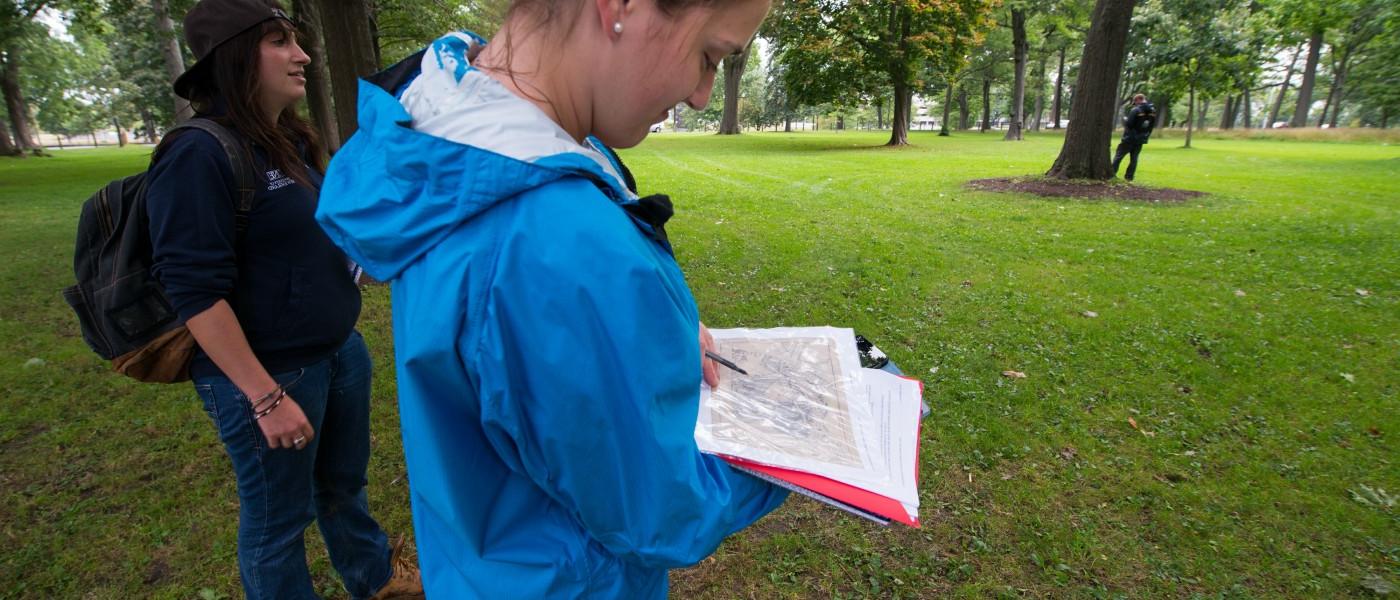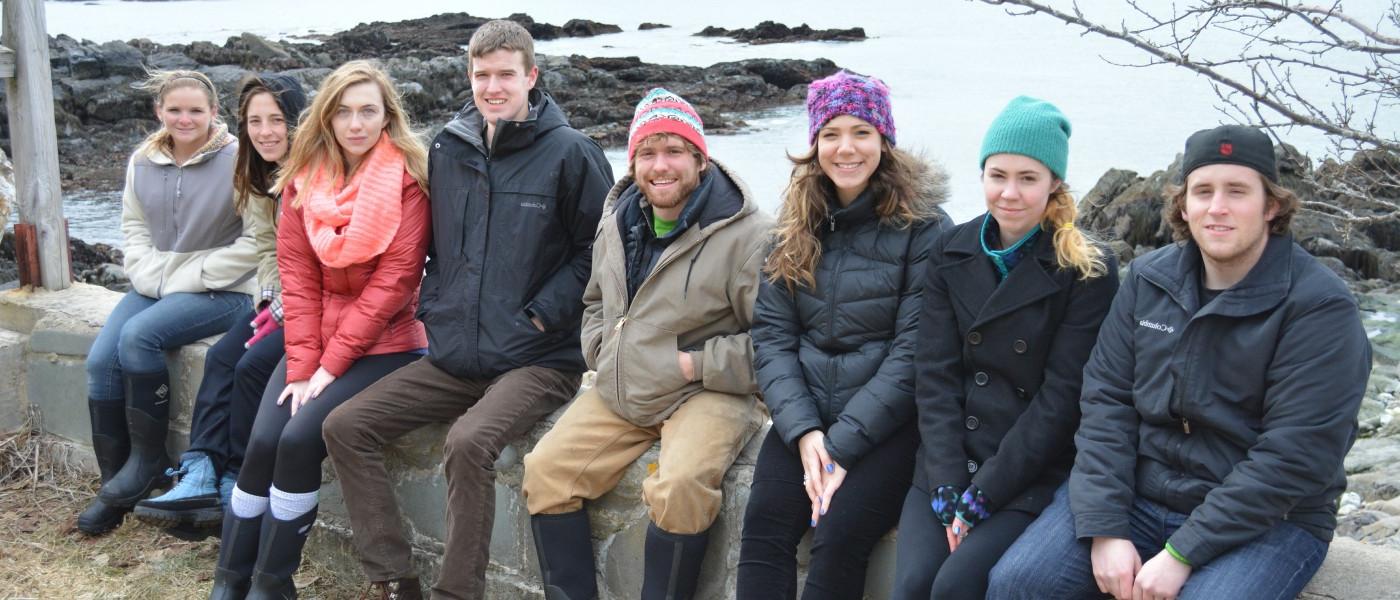Let Nature Be Your Classroom as an Environmental Studies Major
Come explore our unique location on the shores of coastal Maine. As an Environmental Studies major, you will explore the ocean, river, woodlands, wetlands, and vernal pools, as well as beach and dune habitats. Your opportunities for environmental program research and field work on campus are nearly limitless in our 540-acre natural wonderland. Off campus opportunities include internships and global experiences. Nature will be your classroom as you earn your Bachelor of Science in Environmental Studies and acquire the professional skills needed to make a real difference for the environment.


Why UNE for Environmental Studies
From the red maples in the swamps of our 363-acre forest to the harbor seals on our privately-owned island, UNE is brimming with flora and fauna whose habitats serve as a living laboratory for your exploration as you pursue your Bachelor of Science in Environmental Studies.
- Hands-on projects, field trips, research, and internships
- First-year interdisciplinary Green Learning Community
- Short-term faculty-led study abroad courses
- Unique campus setting encompassing diverse habitats
- Deep sense of community and collaboration
What Will You Study? Environmental Studies Degree Curriculum Overview
Since 1991, the faculty of the College of Arts and Sciences has defined environmental awareness as a major theme in the College’s Core Curriculum and asked the Environmental Studies program to deliver the course Introduction to Environmental Issues to all undergraduates regardless of major. The UNE College of Arts and Sciences is one of the few in the nation that requires formal instruction in Environmental Studies as a requirement for graduation.
Examples of Available Courses for the Environmental Studies Degree
The following are just some examples of the exciting courses that the Environmental Studies major offers:
- Sustainability and Ecological Restoration
- Environmental Communication: Expert Practices for Ecosystem Management
- Contemporary Nature Writing
- Environmental Movements and Social Change
- Environment, Health, and Community Development in East Africa
- Climate Change Adaptation: Planning and Policy
Bachelor of Science in Environmental Studies with Secondary Teaching Certification
If you are interested in becoming a middle school or high school science teacher, you may select the necessary courses in secondary education as electives and complete the teaching internship required to qualify for State of Maine certification (grades 7–12) upon graduation.
Double Majors for Environmental Studies
As an Environmental Studies major, you may opt to double major in another discipline. This popular way to enhance your career-preparedness allows you to complete both degrees in four years and prepares you for the complexity of real-world environmental challenges.
For more information including current double major requirements and course sequences, email envstudies@xsdvoip.com.
Popular Double Majors for Environmental Studies Students
Green Learning Community
The Green Learning Community (GLC) is an intentional community of professors and first-year students dedicated to studying human relations to the environment. The year-long experience integrates courses in biology, environmental issues, literature, and economics.
In classes, you will find the same topic presented from different perspectives. You learn about the environment in an atmosphere where your opinions are welcomed and valued by supportive professors who foster a sense of community.
Much of the learning you do through the GLC takes place outside the classroom. The community-building experiences begin early in the fall with a retreat to Bryant Pond where you explore your individual goals for learning while collaborating in outdoor activities like hiking, paddling, and working through a ropes course. Additional field trips throughout the year take you to places like the Wells National Estuarine Research Reserve, Wildlife Conservation Lands, and the Portland Trail System.
The small class sizes in the GLC allow you to receive individual attention and instruction that help develop your academic, research, and communication skills.
Restoring the American Chestnut Tree in Maine
University of New England Professor of Environmental Studies Thomas Klak, Ph.D., and his students, have joined the work to restore the iconic American chestnut tree — once one of the most important forest trees throughout North America, until the species was devastated by a blight.
Career Paths for Environmental Studies Degree Grads
With the knowledge you gain from your Environmental Studies degree coursework, the critical thinking skills you develop through research, and the life skills you acquire from internships and close working relationships with faculty and peers, you will be well on your way to an exciting career working in environmental programs.
Our graduates have pursued careers in many fascinating fields, including:
- Environmental Advocacy
- Air and Water Resource Management
- Ecological Restoration
- Education
- Habitat Conservation
- Park Management
- Environmental Impact Assessment
- Toxicology
- Field Research
- Environmental Law and Regulation
Career Advising for Environmental Studies Majors
Whether you have a specific career goal in mind or a vague idea of the field that interests you, Career Advising is here to help you plan your next step.
Environmental Studies Facilities
Within a short walk or drive from UNE's Biddeford Campus, you may explore a variety of unique habitats, including the University's 363 acres of contiguous forest. The State of Maine Natural Areas Program has labeled the land a "habitat of significant value" due to its high density of pocket swamps and vernal pools. The area contains both uplands and wetlands, and is home to many species, including wild turkeys, deer, coyotes, and moose.
Our Biddeford Campus is also your stepping stone to some of Northern New England’s most intriguing ecosystems.
Experiential Learning in Environmental Studies
Survey and monitor wetlands, teach public school children about recycling, or spend a weekend at an ecovillage. At UNE you don’t just learn environmental studies — you do environmental studies.
Research Opportunities in Environmental Studies
Whether you’re studying the eastern gray squirrel in our own backyard or analyzing soil erosion in Kenya, there are many opportunities to join faculty in their research or to design your own research project. Examine rare species, explore threatened habitats, or investigate best practices in the stewardship of natural resources.
Internships for Environmental Studies Students
Local, national, and global internships enable you to put your classroom learning to work by building life skills, networking in the field, and exploring career options.
For more information email the Academic and Career Advising Center at advising@xsdvoip.com.
Center for Sustainable Communities
The Center for Sustainable Communities is an internship and service-learning program that creates mutually beneficial partnerships between students and environmental organizations in the communities surrounding UNE's Biddeford Campus. Through hands-on involvement with local governments, nonprofit organizations, and community groups, you field-test academic learning in situations that help you "think globally, act locally." For more information email Dr. Christine Feurt.
Possible internship sites
Getting Goat Island Off the Grid
Discover UNE’s 363-Acre Forest
Environmental Studies Fieldwork
Field Trips
Many upper-level Environmental courses include a significant field component. Through our classes you might participate in any of the following:
- Weekend visit at an ecovillage
- Conferences, such as the International Society of Tropical Foresters/Yale School of Forestry and Environmental Studies Yearly Conference
- Overnight camping trips to UNE’s 350+ acre property and to the White Mountains
- Visits to the offices of land conservation nonprofit organizations
- Wetland surveying and monitoring at local bogs, freshwater marshes, salt marshes, riparian areas, and red maple swamps
- Service Learning Trips with Cultivating Community, a nonprofit in Portland, Maine working in urban agriculture, youth leadership training, and sustainability
- Field trips to local incinerators (Eco Maine in Portland and MERC in Biddeford)
- Field trips to local Community Supported Agriculture Farms
- Field trips to the Biddeford Recycling Center
- Service Learning trip to York County Shelter, Inc. in Alfred, Maine
- Field Trips to Portland Trails and hiking along the Presumpscot River Trail in Portland
- Field Trip to Liberty Farms to see a horse-logger operation in Saco, Maine
- Field trip to the Maine Forest Service office in Alfred, Maine
Field-Based Environmental Humanities
Our Environmental Humanities field trips allow you to step outside the classroom to immerse yourself in natural and human-constructed environments that enhance your understanding through direct experience.
From your first semester, you explore the local natural landscape through different literary, historical, and philosophical lenses. For example, you might read Henry David Thoreau and then visit the Beaver Pond Trail, a local wildlife commons created and managed by a member of the faculty.
In your study of environmental history, you read characteristic New England landscapes — forests, coastlines, and waterfront cities — to learn how past interactions between humans and nature give significance to the places we inhabit today. You explore how an understanding of the past informs current environmental issues.
During these excursions, you:
- Explore the ocean surf and tide pools where the first Europeans wintered in North America.
- Paddle the Saco River through the foothills of the White Mountains.
- Bushwhack across a forest to reach Maine’s largest American Beech tree.
- Canoe a glacial cirque lake closely resembling Walden Pond.
- Tour by boat the historic canal system and walk the historic textile factory floor of Lowell National Historic Park to examine how 19th century industrialization affected river conditions and laborers’ lives.
- Read the forested landscape, searching for remnants of historic agriculture and forestry practices, and converse with longtime residents to understand the forest past and inform current conservation.
- Tour urban parks and green spaces, expanding your appreciation of these places by retracing past visions and debates over their development.
- Walk the coastline and trails of a historic salt marsh farm to explore the historic importance of past resource management decisions on coastal ecosystems and communities.
Global Education in Environmental Studies
Aside from UNE's opportunities to spend a semester abroad, you find travel courses. To enroll in these courses, you must submit an application to the Global Education Program. You are encouraged to apply for a Global Education scholarship when applying to these courses.
Apply Today












